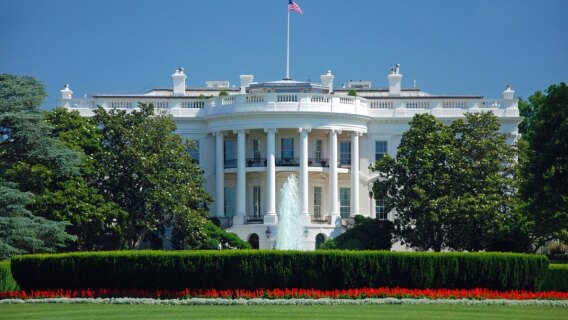You may not have a vote in Georgia’s upcoming special election, but the outcome will have ramifications for your investment portfolio.
In one week, Georgia will be holding a special election to fill two seats in the U.S. Senate (early voting has already started), and polls show Democratic and Republican candidates in tight races. This election obviously doesn’t bring the same fanfare as the national elections last month, which is to be expected, most voters don’t have a say in this one. But investors are rightfully focused on this special election as it will determine whether the market will be facing a divided or unified government. Two Senate seats may not seem like much, but a pair of Democratic wins could mean major healthcare overhaul, changes in federal marijuana policy, and increased regulation and environmental reform.
[text_ad]
Predicting what Washington will do to our portfolios is probably a fool’s errand, but we can look to the past to gain some insight into what the special election could portend. Plus, given the current configuration of the Senate, we’re really only dealing with two outcomes: one in which both Democrats win or the other in which one or both Republicans win, which would result in Republicans maintaining a Senate majority.
Democrats Win Both Special Election Seats
While the equity markets have historically performed best with Democrats in the White House (11% average returns vs. 7.8% under Republican Presidents, as measured by the Dow), those returns are tempered by market performance under a unified government. Should both Democratic candidates win this special election, we’d be facing a configuration that historically returns only 5.6% each year. There is something to be said for the idea that this year could be different though, given the fact that we’re in the midst of a once-in-a-century pandemic.
A unified Washington could provide more generous stimulus packages and a more comprehensive pandemic response which could spur further market gains and increase participation in the economic recovery. Democratic control of the government could also accelerate federal legalization of marijuana, although that seems like it’s just over the horizon, regardless of the outcome of the special election. These possibilities paint a more bullish short-term picture than historical returns would indicate and given the market’s response to political bickering over stimulus, the possibility of the market rallying simply in relief from an end to the chaos is certainly in the cards.
On the downside, unified Democratic control of the federal government would almost certainly lead to, at the very least, attempts at healthcare reform and tax policy changes, which would introduce added uncertainty to the market and could drag down equity returns.
Republicans Win One or Both Special Election Seats
From the market’s perspective, this is the best possible outcome. A Democrat in the White House and split control of Congress has historically led to 13.3% annualized equity market returns. In other words, the markets love it when Washington infighting lets companies and the economy do their things. If Republicans maintain control of the Senate, there’s a possibility of some healthcare reform, but it’s unlikely that we see significant industry shakeup. At the same time, a divided government is unlikely to make material regulatory or tax policy changes.
But, like everything else this year, there’s always a pandemic caveat. Should a Republican Senate drag its heels on pandemic measures that would benefit consumers and businesses alike, we could easily see those prospective returns tempered. That being said, it does appear that President Trump’s decision to sign the most recent stimulus package is a signal from the top that negotiating with Democrats, at least for pandemic relief, is acceptable.
In all likelihood, continued good-faith negotiation for pandemic relief coupled with inaction on other fronts would be the best possible outcome. Continued aid to consumers without tax or regulatory changes would allow for continued spending without adding uncertainty to the mix. Predicting elections is hard work, and even the best are frequently wrong. And that’s without the backdrop of the pandemic. Maybe this year’s different, maybe the unique challenges presented by Covid will further upend the markets. But in my experience, it’s best not to fight historical trends.

